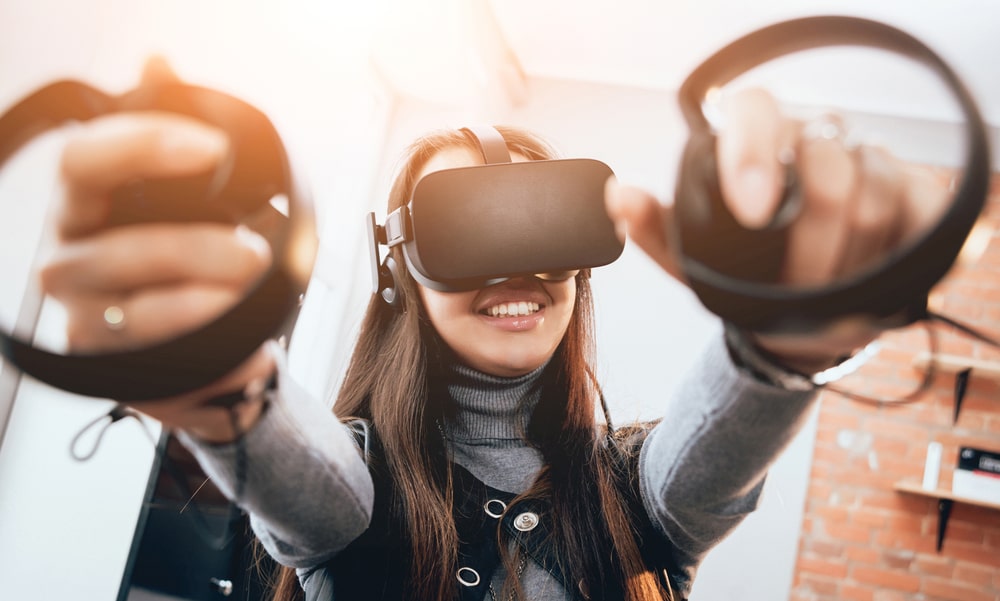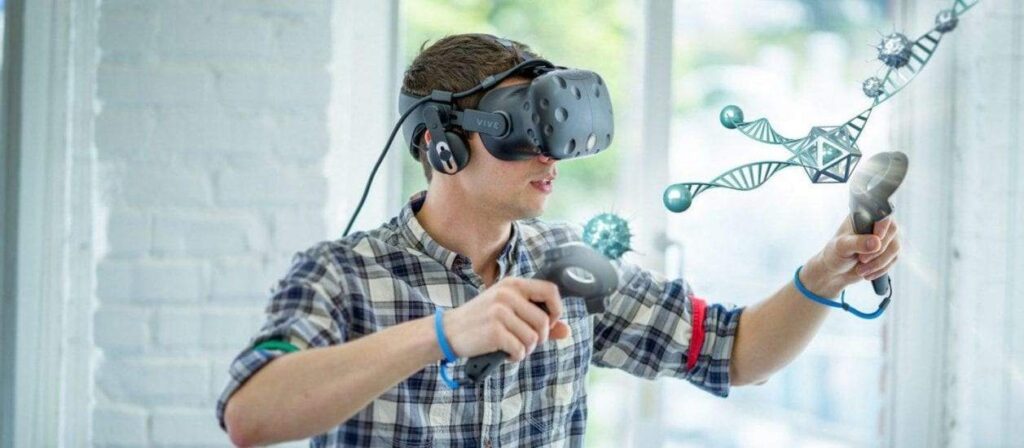
Do you want to improve your self-confidence, commitment, creativity, and out-of-box thinking? No, it’s not about another online courses coming with an attractive discount. Just play Virtual Reality life games and you’ll get the result shortly.
VR games can give you confidence
It’s a well-known fact that Virtual Reality can give you new experience, especially if you are a gamer. But have you ever thought that VR can be capable of changing your behavior and improving your personal qualities?
It may sound fantastic but, according to the latest research, gamers who played VR games with athletic and slim avatars used to increase their physical activity in real life.
Such kind of experience also provides users with inspiration, self-confidence and desire to reach goals. The slogan “Everything is possible” which can go with VR games comes into reality even after players take off the headsets.
Related article: VR Development: Everything You Need to Know in 2020
VR provides you with an outstanding experience
VR simulators are popular in gaming but they are also very helpful in medicine, education, and training. Thanks to VR simulators you can learn how to control a helicopter or plane in a few days. Of course, it would be difficult to pilot a real flying object without practice but apparently, it reduces training hours significantly.
Virtual Reality programs are used developed for elderly people who have been diagnosed with Alzheimer’s disease. Through VR these patients get the opportunity to feel the experience that they wouldn’t be able to have anywhere else.
Read also: Will Virtual Reality (VR) Transform Architectural Visualisation?

The negative impact of VR
Virtual Reality life games can also have a negative impact on people. You might have already heard some stories about gamers who got injuries while playing.
Collisions with real objects and trip-and-falls are pretty common. Another thing that is worth thinking about is called Virtual Reality sickness (or cybersickness). The symptoms are very similar to motion sickness and mean that actual motion differs from the expected one. In other words every time your real life avatar makes movement your brain expects that your body will move in the same way. And when it doesn’t… mental disorder can be caused.
During the last decade, Virtual Reality has been evolving super fast. The expansion grows not only to new countries but also to new fields. From day to day, the developers improve the technology trying to eliminate such concerns as motion sickness, discomfort, and space limits. In the near years, we may expect that virtual life will replace a real one even more, and gamers with headsets won’t be a rare thing.





